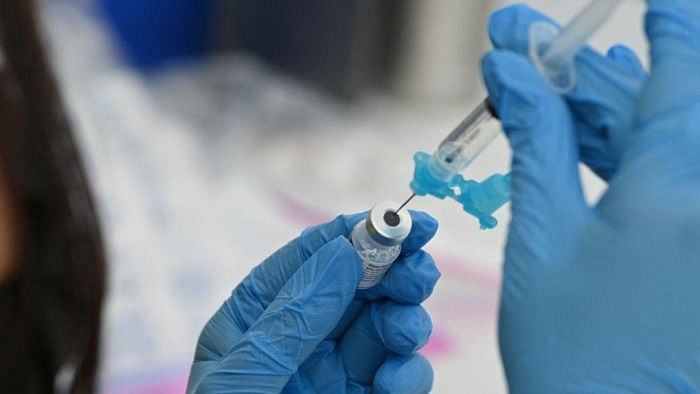
India's first and only mRNA vaccine against Covid-19 on Tuesday received regulatory approval for advanced clinical trials to examine its protective efficacy, raising the hopes of its availability for public use after a few months.
“It is a matter of pride that Nation’s first mRNA-based vaccine is found to be safe and the Drugs Controller General of India has approved the phase II/III trial. This is an important milestone in our indigenous vaccine development mission and positions India on the global map for novel vaccine development,” said Renu Swarup, Secretary, DBT.
Developed by Gennova Biopharmaceuticals Ltd, a Pune-based company with support from the Department of Biotechnology, the indigenous vaccine uses the same messenger RNA-technology based platform that has been exploited successfully by Moderna and Pfizer-BioNTech to come out with the world’s two most successful vaccines with around 95% efficacy against the rampaging Covid-19 epidemic.
The Central Drugs Standard Control Organisation approved the trials on the basis of recommendations by a Subject Expert Committee which perused the interim phase-1 data and found that the vaccine candidate was safe, tolerable and immunogenic.
The trials will be conducted at approximately 10-15 sites in Phase II and 22-27 sites in Phase III. Gennova plans to use the DBT-ICMR clinical trial network sites for the trials, which are likely to commence in early September.
"The biggest advantage of a mRNA vaccine is that in case of emergence of a new variant, a new vaccine can be quickly made,” Sudhanshu Vrati, executive director at the Regional Centre of Biotechnology and a member of a government advisory panel on Covid genome sequencing told DH.
Gennova may need six to eight weeks to use its mRNA technology platform to come out with a new vaccine targeting a new variant. While the thermo-stability of such vaccines developed by Moderna and Pfizer-BioNTech remains an issue, sources familiar with the Gennova product said that the homegrown vaccine can remain stable at 2-8 degrees Celsius.
Another advantage of an mRNA vaccine, according to Vrati, is that such vaccines contain only the right type of proteins instead of several types of proteins as seen in conventional vaccines
While the Centre earlier said it would procure 6 crore doses from Gennova between August and December, it is not clear whether the company would be in a position to supply such a quantity by December after completing the trials.
Sanjay Singh, CEO of Gennova Biopharmaceuticals Ltd said “After establishing the safety of our mRNA-based Covid-19 vaccine candidate (HGCO19) in phase-I clinical trial, Gennova’s focus is to start phase II/III pivotal clinical trial. In parallel, Gennova is investing in scaling up its manufacturing capacity to cater to the nation's vaccine requirement.”
Pfizer-BioNTech and Moderna, the manufacturers of two successful mRNA vaccines with 95% efficacy, are in talks with the central government to supply their vaccines in the Indian market, but there is no decision yet on the part of the government.
Check out DH's latest videos:
